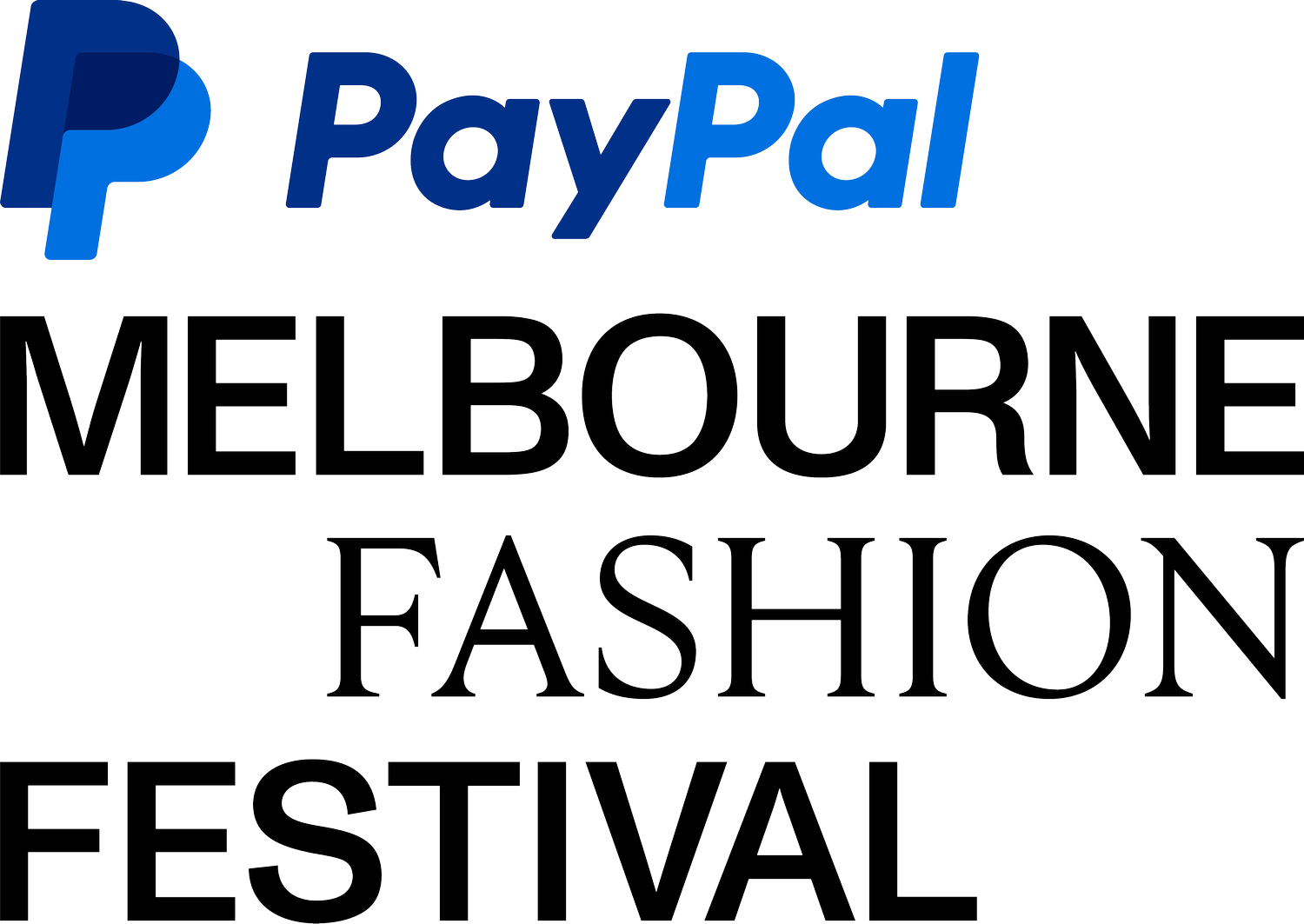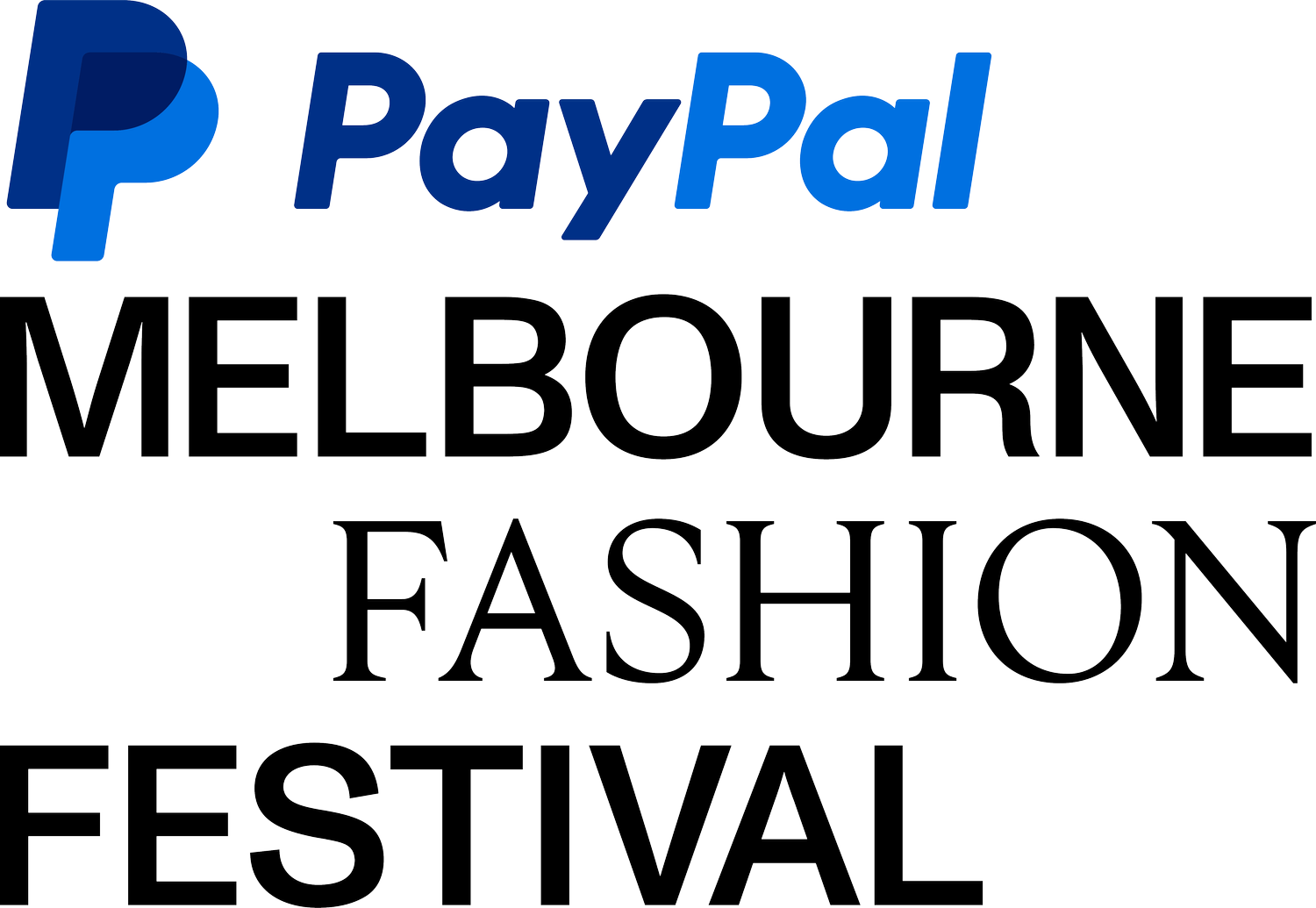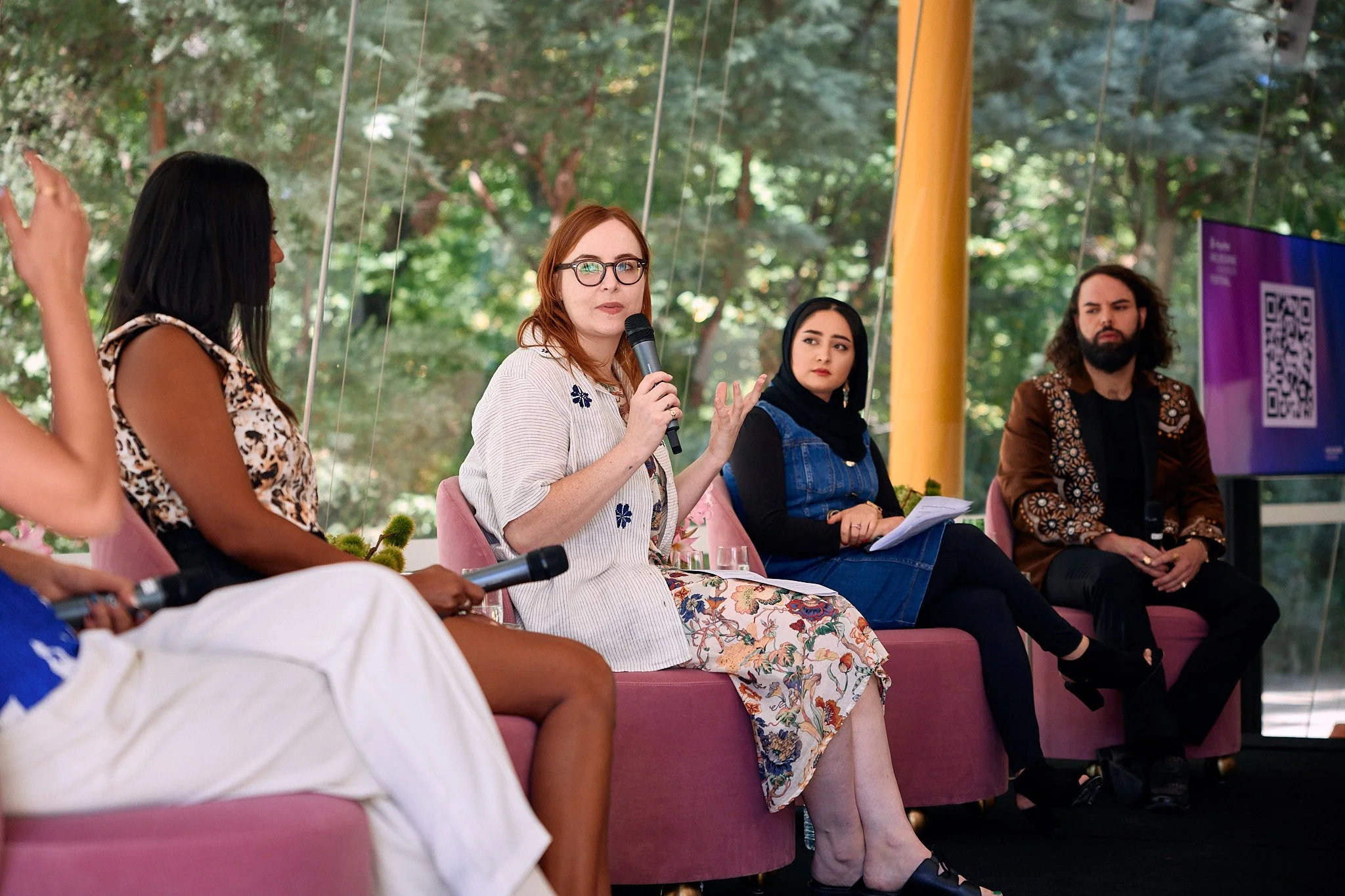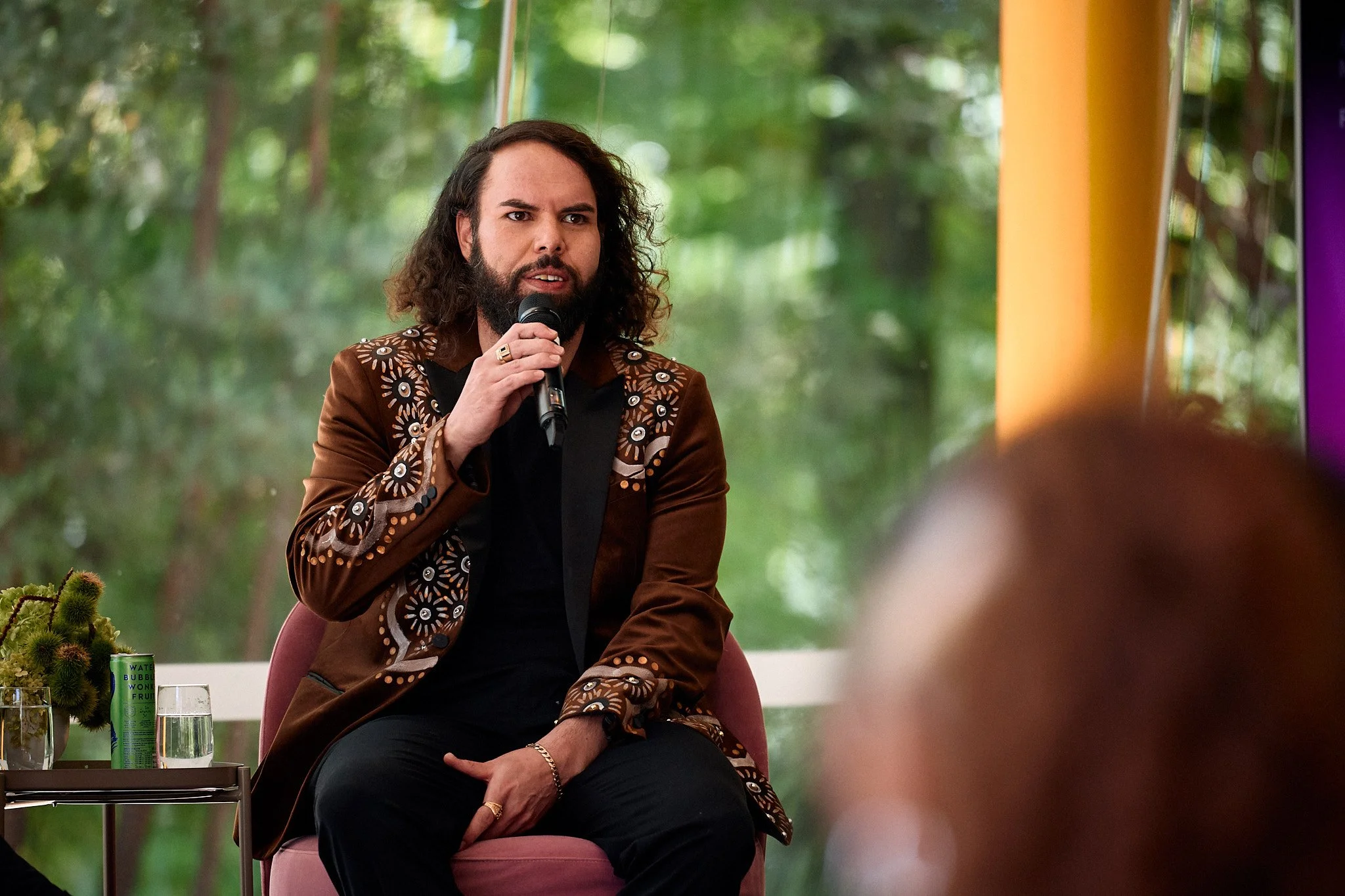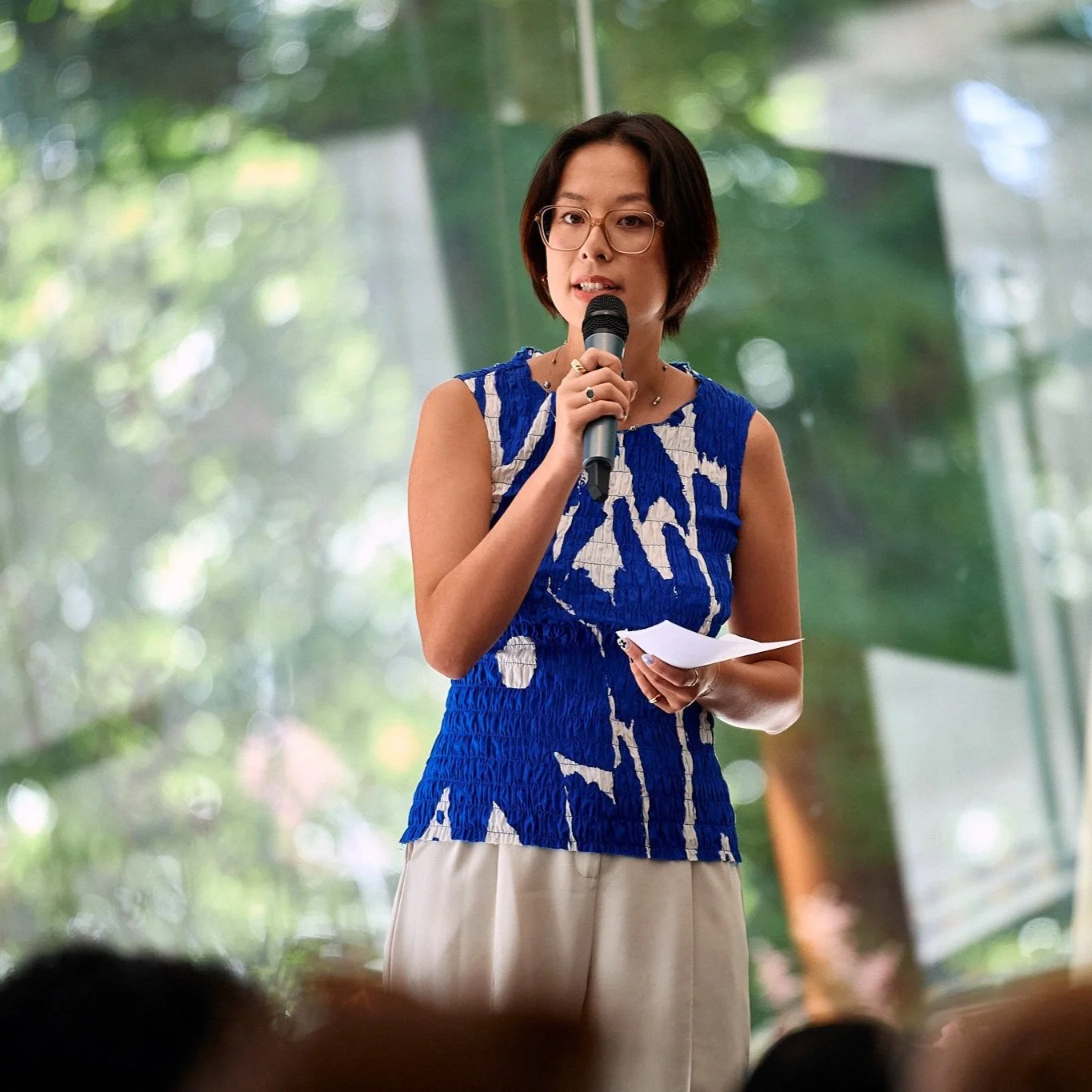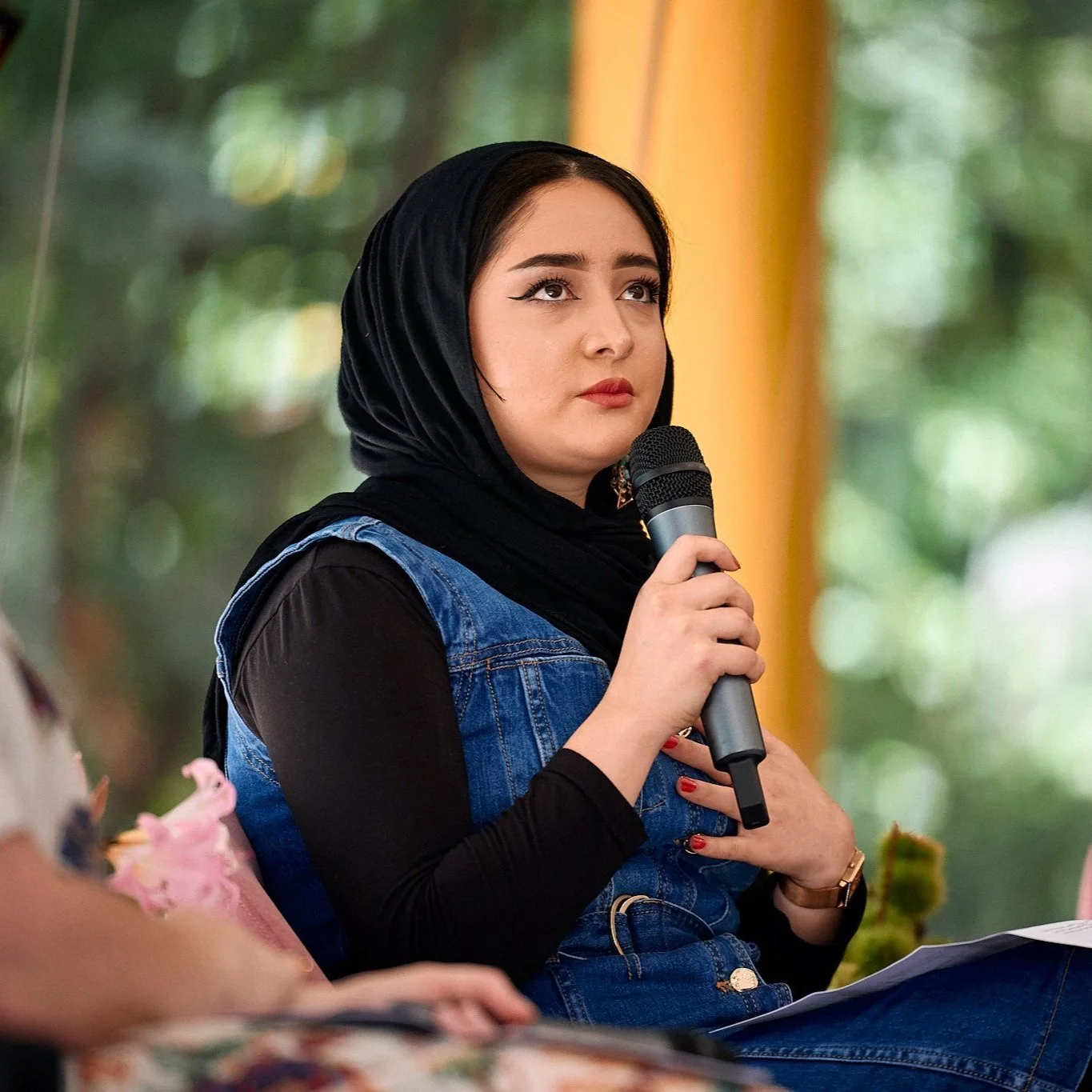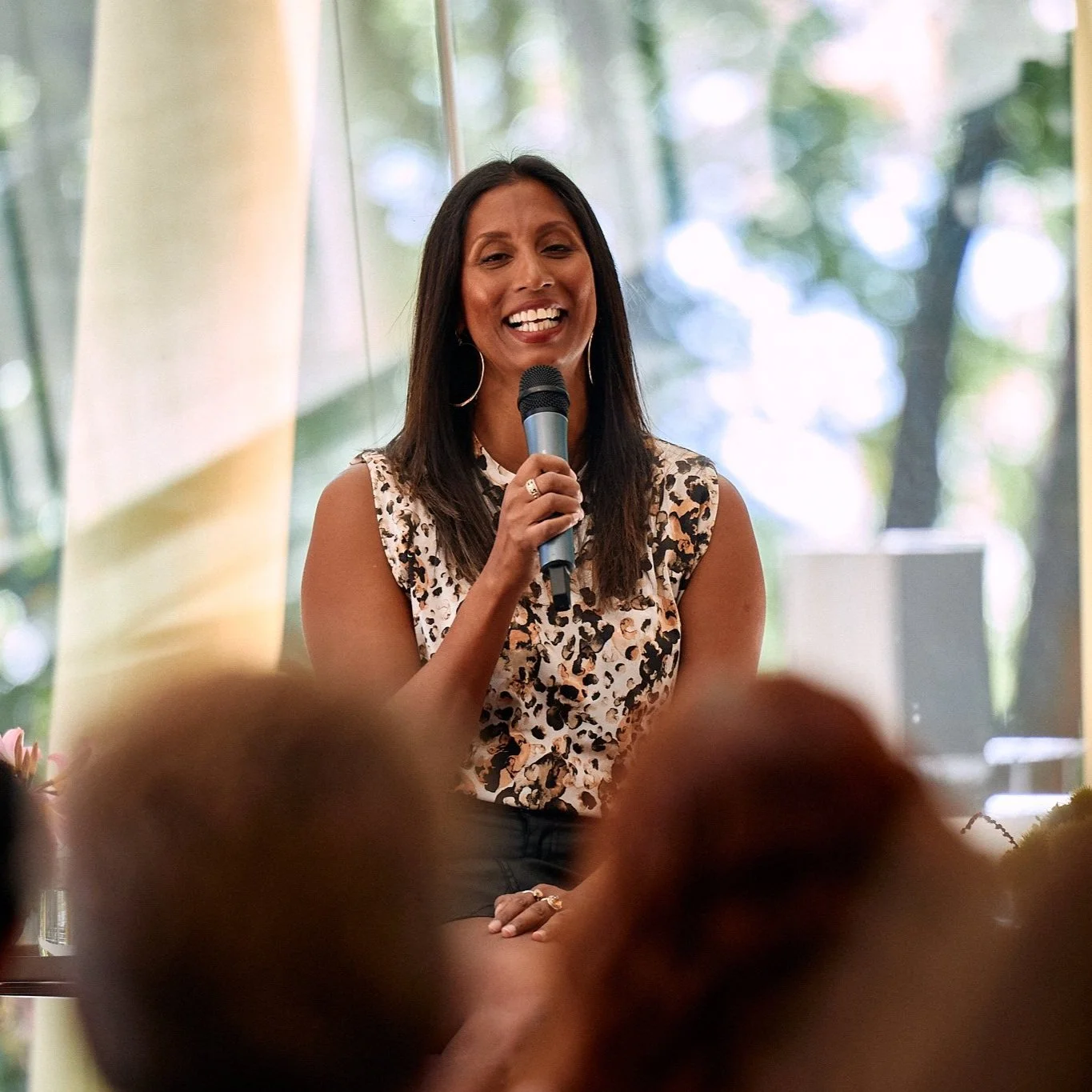FASHION TALKS: CONVERSATIONS ACROSS CULTURE, PRESENTED BY MUSEUMS VICTORIA
6 March 2024 | Words by Evie Dinkelmeyer
Hosted by writer and Culture Club podcast co-host, Maggie Zhou, this panel talk includes discussion between First Nations designer, Paul McCann; Creative Projects Manager at Social Studio, Bonnie Mooney; Women's Community Advisory Group representative, Shegofa Nasari, and Inclusion Thought Leader, Winitha Bonney.
Addressing her audience in the leafy Treetops room of the Melbourne Museum, host Maggie Zhou opens the discussion with this: “multiculturality is one thing, but being part of a society that honours, respects and operates in tandem with multicultural communities is something else entirely.”
What authentic inclusion looks like
For Bonnie, it means “having the community lead the project”, where the organisation is “simply there to help with the structures and communication, and to show the people involved just how talented they are.”
The Social Studio does this by collaborating with their artists from the very beginning of a collection. Bonnie explains “we started with asking [the Afghani women we were working with], tell us what spring and summer in Afghanistan is like. And through these stories, we discovered these beautiful ideas that sparked our designs.”
Bonnie credits Shegofa, who is the Social Studio’s bicultural worker and translator: “without [her], we couldn’t communicate.” For Shegova, it’s important to help her own community: “I can see my help and my presence ... helps them get over certain challenges.”
Winitha adds that collaborations need to be looked at with kindness. She says you must ask yourself, “What is the kind thing to do at this moment? And sometimes, it’s to decide not to go down the path of a collaboration.”
She suggests that “if you’re a brand, and you were asked ... about that culture, or the ancestry of that person, would you be able to answer on the spot? Without your media team prepping that answer for you? ... If you are unable to do that, then it means you need to spend a bit more time [learning] before you start working with that artist.”
When cross cultural collaboration goes wrong
Winitha draws on her two decades of experience in the business to call out brands who are too focussed on the commercial angle of the partnership. “If they are doing very little work or support out in the community, or they don’t even have a Reconciliation Action Plan ... that’s a really big red flag.”
She adds that “sustainability is part of our responsibility to care for country”, so brands need to have strategies in place around that too.
Winitha notes that as brands and as humans, we are always growing. “When we’re designing something, and there is [a cultural sensitivity] we’re not aware of... when people point that out to us, they’re helping us step into our integrity.”
“Speaking up is an act of service, to help us create better versions of ourselves.” Essentially, being ‘cancelled’ is an opportunity to learn.
“From my Indigenous perspective, we have only been involved in the fashion industry, and taken seriously, for probably the last four years. A lot of us don’t have the
infrastructure behind us, the money, the sewing machines...so it’s important that the brand is providing that support to the artist.”
How to navigate the partnership
Bonnie has a grateful perspective: the skills that Afghani women have provided to the Social Studio are “not ... easily found in Australia anymore. They are offering them to us, and we are so privileged to welcome them.” In return, she is “helping to document and record their work, and retain it within the cultural craft landscape.”
Winitha says the best course of action is “respecting how [the artist] wants to create” and co-designing from the very beginning.
Paul corroborates: “you need to let me do my thing.”
Key advice from our panellists
Paul: Do your homework, so you really know who you’re coming into contact with. Bonnie: Consider that there may be barriers that you may not have expected. You need to have an understanding of the background of the culture you’re collaborating with. “There are a lot of things we do every day without thinking that can be huge challenges to others.”
Shegofa: Sometimes you need to know when to push your community to be independent – she shares a story: “The group I was working with, they’re new to the country and had never caught public transport by themselves before. Some of them were not able to touch on their Myki, or check the bus schedule ... [I realised] that when I am with them ... they won’t take a step themselves. I told them once I couldn’t come because I had a really important meeting. ... It was challenging, they got lost ... but after a few weeks, they were telling me ‘we will come by ourselves’. I’m really grateful.”
Winitha: True leadership is being of service to others.
